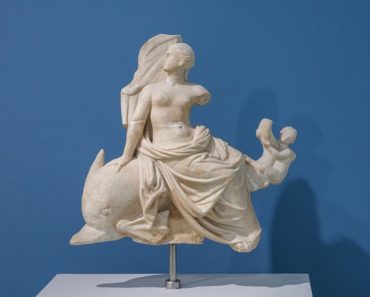
Alexander the Great was born in July 356 BC. While the exact day can vary slightly depending on the source, it is generally cited as July 20th or 21st, 356 BC. He was born in Pella, the capital of the Kingdom of Macedon.
The primary source that provides the most detailed information about Alexander the Great‘s birth, including the specific date, is Plutarch’s “Life of Alexander.”
Plutarch (c. 46 – c. 120 AD), a Greek biographer and essayist, wrote his “Parallel Lives” centuries after Alexander’s death, but he drew upon earlier, now-lost sources, including those written by contemporaries of Alexander like Ptolemy I Soter and Aristobulus.
Plutarch, in his “Life of Alexander,” offers a remarkably detailed and somewhat dramatic account of Alexander the Great’s birth, emphasizing the auspicious and even supernatural circumstances surrounding it. He doesn’t just give a date; he weaves it into a narrative filled with omens and divine interventions, setting the stage for Alexander’s extraordinary life.
What Plutarch says about Alexander’s birthday
Plutarch states that Alexander was born on the sixth day of the month Hecatombaion, which the Macedonians called Lous. This translates to approximately July 20th or 21st, 356 BC. While ancient calendars didn’t always align perfectly with modern ones, this is the most precise date we have from ancient sources.
Plutarch highlights a significant coincidence: Alexander was born on the very same day that the magnificent Temple of Artemis at Ephesus, one of the Seven Wonders of the Ancient World, was burned down. He even recounts a “frigid conceit” by the historian Hegesias of Magnesia, who quipped that it was no wonder the temple burned, as Artemis (goddess of childbirth) was busy attending to Alexander’s birth. This connection suggests a divine, if ironic, link between Alexander’s arrival and a monumental event.
Plutarch goes into detail about dreams and signs experienced by Alexander’s parents, Philip II and Olympias:
The night before her marriage to Philip, Olympias dreamed that a thunderbolt struck her body, kindling a great fire whose flames spread far and wide before being extinguished.
Some time after their marriage, Philip dreamed he was sealing up Olympias’ womb with a seal bearing the image of a lion. Most diviners interpreted this as a warning for Philip to guard his wife more closely. However, Aristander of Telmessus, a renowned soothsayer who later accompanied Alexander, interpreted it to mean that Olympias was pregnant and would bear a son as spirited and lion-like.
Plutarch also mentions that a large, tame serpent was once seen lying beside Olympias as she slept. This reportedly cooled Philip’s passion for her, either due to fear of her magic or a religious scruple, suggesting a divine presence (possibly Zeus, who was often associated with serpents) in Olympias’ chambers. This detail became a key element in the later belief (or propaganda) that Alexander’s true father was Zeus.
Philip receives good news on the day of Alexander’s birth
On the very day Alexander was born, Philip received three pieces of good news simultaneously:
His general Parmenion had won a great victory against the Illyrians.
His racehorse had won a victory at the Olympic Games.
His wife, Olympias, had given birth to a son.
Plutarch notes that Philip was naturally delighted, and the diviners further boosted his spirits by assuring him that a son whose birth coincided with three such successes was destined to be invincible.
Plutarch’s account, although not a modern historical document with exact dates and footnotes, effectively emphasizes Alexander’s exceptional destiny and divine favor. These stories, whether literal truth or later embellishment, were crucial in shaping the legend of Alexander the Great and reinforcing his image as a man touched by the gods.
While Plutarch is the most explicit, other ancient historians who wrote about Alexander, such as Arrian, Diodorus Siculus, Quintus Curtius Rufus, and Justin, also generally corroborate the events of his life, including his birth year. However, they might not delve into the specific day with the same detail as Plutarch. These later historians also relied on earlier, now-lost primary accounts.
The ancient Greek calendars (like the Macedonian and Athenian ones) were lunar-based and often varied by city-state. Correlating them precisely to the Julian calendar (which is the basis for our modern Gregorian calendar) is a complex task and can lead to slight variations or “orabouts” in the exact day.
That’s why you often see “July 20th or 21st” cited. There isn’t a definitive, universally agreed-upon single date in modern terms that all scholars will swear by, although the range is very narrow.
Related: The Astounding Story of Alexander the Great







